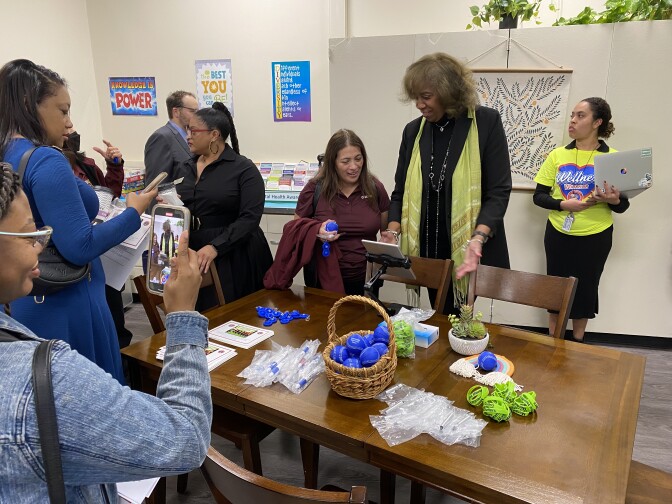This story is free to read because readers choose to support LAist. If you find value in independent local reporting, make a donation to power our newsroom today.
K-12 Students In LA County Will Soon Have Access To Free Virtual Mental Health Therapy

The Los Angeles County Office of Education (LACOE) officials announced this morning that they are teaming up with school-based telehealth company Hazel Health to make virtual therapy available to the county’s 1.3 million students in public K-12 schools.
What many experts call a youth mental health crisis has come to the forefront in recent years, with the U.S. Surgeon General pointing to climate change, racial injustice, income inequality — and now COVID-19 — as well as other factors, all of which have had a “devastating” effect on young people’s mental health.
According to Governor Newsom’s Master Plan for Kids’ Mental Health, in California, “66 percent of kids with depression do not receive treatment.”
LA County Superintendent of Schools Debra Duardo told a press conference at Benjamin O. Davis Middle School Thursday that the need for these services have always existed but have become more necessary since the pandemic.
"We also know that there has been other societal challenges, such as the violence we saw last week and these are things that our children have to learn how to cope with as they continue their education," Duardo said.
How It Will Work
California is seeing an influx of money meant to help address the youth mental health crisis. L.A. Care Health Plan and Health Net have set aside up to $24 million over the next two years for the telehealth services. That funding comes from the state’s Student Behavioral Health Incentive Program.
Local school districts will be able to opt-in to Hazel Health’s virtual therapy services. The Los Angeles Unified School District as well as the Compton School District have already signed on for the program. Benjamin O. Davis Middle School has been offering the virtual mental health services since December of 2022. Organizers hope dozens more districts will opt in in the next few months. The services will be available to students regardless of their insurance level or health plan.
Once a school district has enrolled in the program, LACOE and Hazel Health will provide information to parents on students on how they can start services.
Hazel’s platform will allow K-12 students to get access to virtual therapy with California-licensed therapists. The company says roughly 60% of its therapists are people of color and some 30% are bilingual. The services will be available virtually, both at school and at home. Students can check out an iPad or log in from their own smartphone or other device.
Parents will be able to message their child's therapist at any time through Hazel Health's app in order to get a summary of progress "but will not get a full report of the session’s notes or specific details," according to a LACOE spokesperson.
Referrals will be accepted from a parent, guardian, school counselors, school counselors and other school staff. For now at least, referrals cannot come from an outside physician or other provider.
Interim Director of Los Angeles County Department of Mental Health Dr. Lisa Wong said the services offered through Hazel are part of a multi-pronged approach to mental health in LA. "With Hazel Health providing students with supportive mental health services, LA County Department of Mental Health is better able to build our capacity to serve those who are most vulnerable in our population," Wong said.








